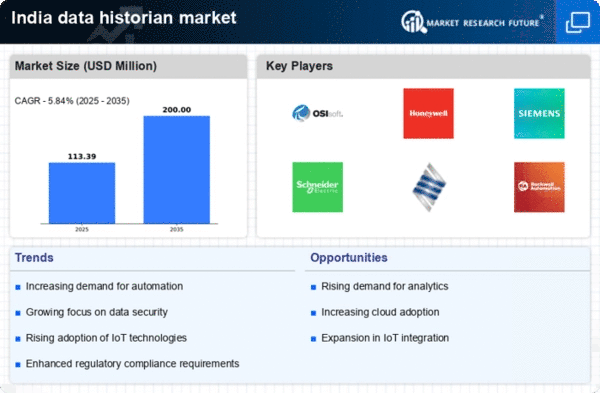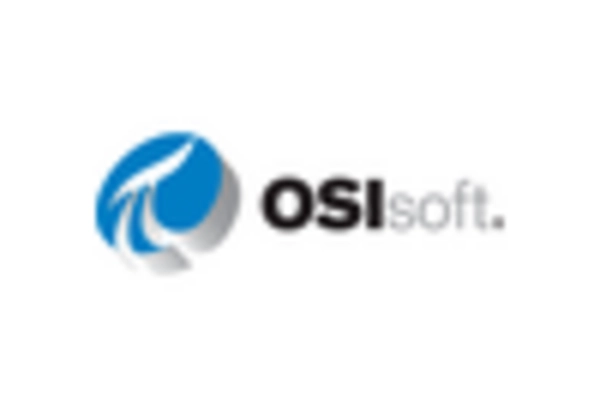Expansion of Industrial Automation
The ongoing expansion of industrial automation in India is significantly impacting the data historian market. As industries increasingly adopt automation technologies, the need for effective data management solutions becomes paramount. Data historians play a crucial role in collecting, storing, and analyzing data generated by automated systems, thereby enabling organizations to optimize their operations. The Indian government has been promoting initiatives to enhance automation across various sectors, which is likely to drive the growth of the data historian market. This trend indicates a shift towards more data-centric operations, highlighting the relevance of data historians in the data historian market.
Growing Focus on Predictive Maintenance
The emphasis on predictive maintenance within various industries is reshaping the data historian market in India. Organizations are increasingly adopting data historians to analyze historical data and predict equipment failures before they occur. This proactive approach not only reduces downtime but also minimizes maintenance costs. Industries such as manufacturing and oil and gas are particularly focused on leveraging data historians for predictive analytics. It is estimated that predictive maintenance can reduce maintenance costs by up to 30%, thereby enhancing the overall efficiency of operations. This trend underscores the importance of data historians in the data historian market.
Regulatory Compliance and Data Governance
The evolving regulatory landscape in India is driving the need for robust data governance frameworks, which in turn is influencing the data historian market. Organizations are required to comply with various regulations concerning data privacy and security, necessitating the implementation of data historians to ensure compliance. The data historian market is witnessing an increase in demand for solutions that facilitate data integrity and traceability. As companies strive to meet regulatory requirements, the adoption of data historians is expected to rise, reflecting a growing awareness of the importance of data governance in operational processes.
Rising Demand for Real-Time Data Analysis
The data historian market in India is experiencing a notable surge in demand for real-time data analysis. Industries such as manufacturing, energy, and utilities are increasingly relying on data historians to capture and analyze data in real-time, enabling them to make informed decisions swiftly. This trend is driven by the need for operational efficiency and improved productivity. According to recent estimates, the market for data historians in India is projected to grow at a CAGR of approximately 12% over the next five years. This growth is indicative of the broader shift towards data-driven decision-making across various sectors, highlighting the critical role that data historians play in the data historian market.
Increased Investment in Smart Infrastructure
India's push towards smart infrastructure development is significantly impacting the data historian market. Government initiatives aimed at modernizing urban infrastructure, such as smart cities, are creating a favorable environment for the adoption of data historians. These systems are essential for monitoring and managing infrastructure performance, thereby enhancing service delivery. The Indian government has allocated substantial funds, estimated at over $1 billion, for smart city projects, which is likely to drive the demand for data historians. As cities become more interconnected, the data historian market is poised to benefit from the integration of advanced data management solutions.
















